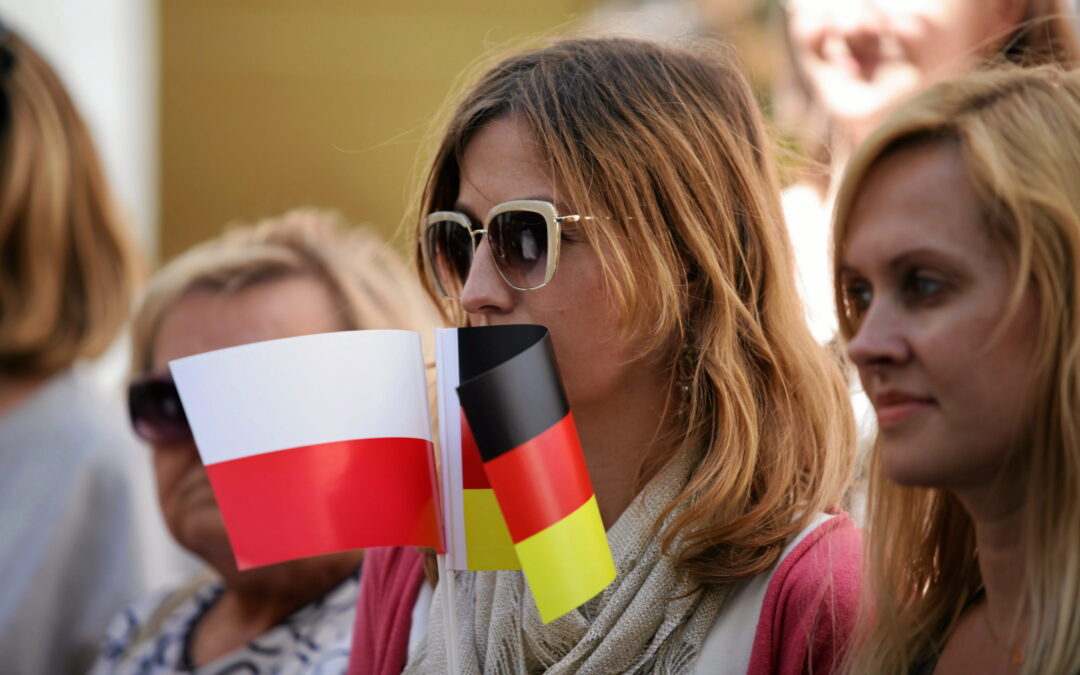Poland’s decision to cut by two thirds the number of hours of German teaching provided to children from the country’s German minority is discriminatory and based on a misunderstanding about how the teaching of Polish in Germany is funded, according to a German government official.
Last week, the education minister issued an ordinance introducing the cuts. That followed a decision by parliament to reduce annual funding for teaching Poland’s 150,000-strong German minority by 40 million zloty (€8.8 million) and to instead allocate money to teaching Polish to members of the Polish diaspora in Germany.
The decision was supported by MPs from the ruling national-conservative Law and Justice (PiS) caucus, who argued that it restored “symmetry” between the two countries because, whereas Poland provides funding for teaching its German minority, Germany does not do the same for its large Polish community.
However, Bernd Fabritius, the German government’s commissioner for matters related to ethnic German resettlers and national minorities, says that this is not true. While the federal government does not provide such funding, that is because education is administered by individual states.
He notes that those states together spend around €200 million annually on teaching Polish to almost 15,000 students, reports TVN24.
Informacja ambasady Niemiec z grudnia 2021 r. (strona FB) o sytuacji w Niemczech:
14246 uczniów szkół średnich uczyło się języka polskiego jako ojczystego, korzystało z niemieckich dotacji w wysokości 202,3 mln EUR (937 mln PLN) w 2020 r. pic.twitter.com/IZkRizUKff
— Andreas Prause (@AndreasPrause) February 7, 2022
Fabritius also pointed to the different legal statuses of the respective communities. Poland’s German minority was created by the transfer of German territory to Poland after the war, whereas Germany’s Polish minority is made up mostly of immigrants and their descendants.
This week, Fabritius visited Opole – a Polish city (which was Oppeln in Germany before the Second World War) with a large ethnic German population – in response to Poland cutting education funding.
“From the perspective of the German government,” he said, Poland’s decision “means discrimination against the German minority recognised in Poland as a national minority”. He added that he wanted to “correct the misconceptions on which this decision was based”, reports Deutsche Welle.
Bernard Gaida, head of the Union of German Social and Cultural Associations in Poland, expressed similar sentiment, noting that the Polish government’s decision was targeted against only one of the country’s various recognised minorities. “We can’t imagine that such a rule could function in a democratic state,” he said.
One of the Polish MPs who has pushed most vocally for the funding cuts, Janusz Kowalski, however, said that the “German minority is telling lies, lies and more lies”. He claims that, under the terms of a 1991 treaty, “Germany is obliged to teach Polish as a mother tongue in German schools”.
But there “is not a single German school” where this happens, said Kowalski. Instead, Polish children are only given the possibility of “learning the language as immigrants, which is humiliating”, he added, quoted by Telewizja Opolskie.
Skandal! Pełnomocnik rządu RFN powiedział o Polakach w Niemczech, że to mniejszość etniczna! Nieukom z PO tłumaczę, że mniejszość etniczna to mniejszość, która nie ma państwa. Polska ma państwo i należy nam się szacunek oraz równe traktowanie przez Niemców! 🇵🇱 pic.twitter.com/BDFSlCihaq
— Janusz Kowalski 🇵🇱 (@JKowalski_posel) February 9, 2022
Fabritius and representatives of the German minority in Poland still hope that a resolution to the issue can be found in discussions with the Polish authorities.
On Monday, a member of Poland’s ruling camp – PiS MEP and former education minister Anna Zalewska – likewise told Radio Opole that she is confident an agreement can be reached.
Poland’s German minority “are good neighbours, friends, great teachers”, she said. “We must therefore find a solution. I will meet representatives of the German minority within the next two weeks. Together, we will definitely find a good solution for the children.”
Yesterday, the Council of Europe’s Committee of Experts of the European Charter for Regional or Minority Languages noted its “concern” at Poland’s decision to make cuts to teaching for its German minority.
Main image credit: Roman Rogalski / Agencja Gazeta

Daniel Tilles is editor-in-chief of Notes from Poland. He has written on Polish affairs for a wide range of publications, including Foreign Policy, POLITICO Europe, EUobserver and Dziennik Gazeta Prawna.




















